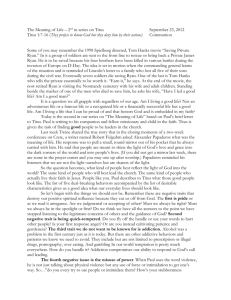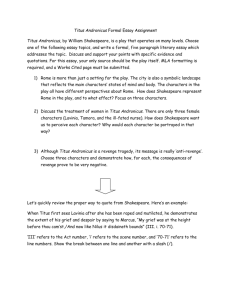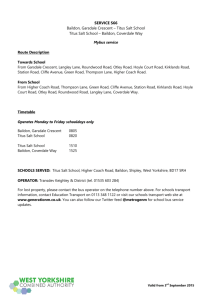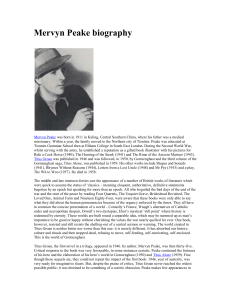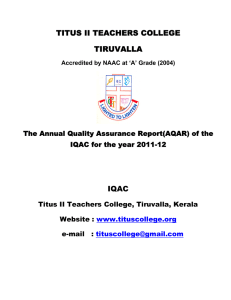C H T olonel
advertisement
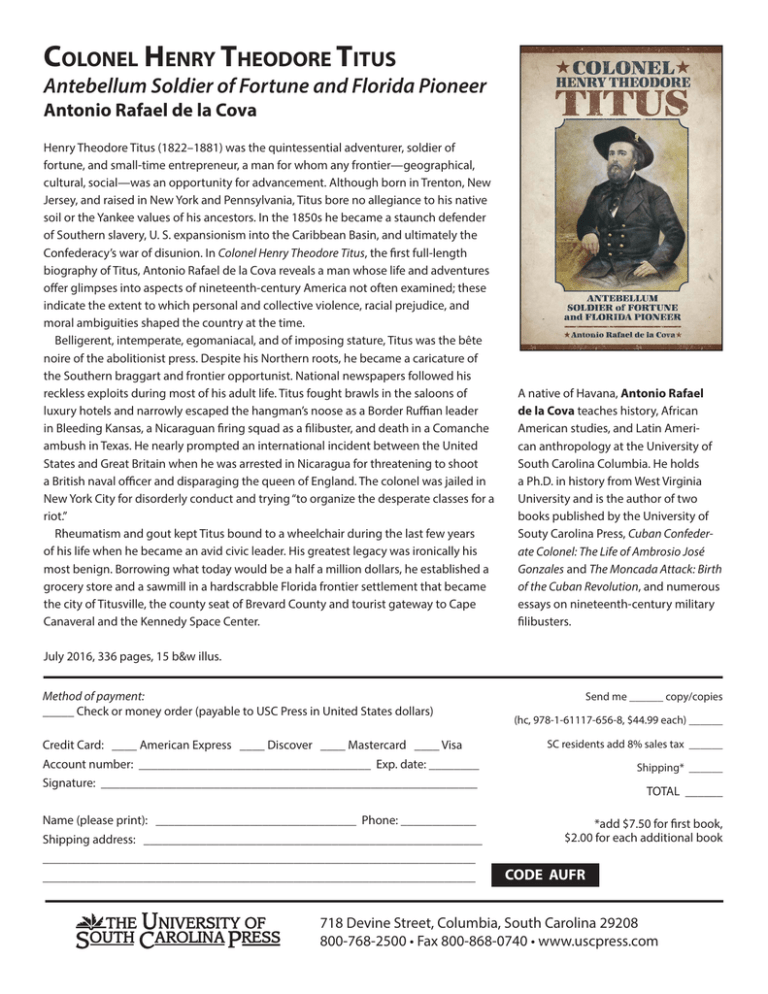
Colonel Henry Theodore Titus Antebellum Soldier of Fortune and Florida Pioneer Antonio Rafael de la Cova Henry Theodore Titus (1822–1881) was the quintessential adventurer, soldier of fortune, and small-time entrepreneur, a man for whom any frontier—geographical, cultural, social—was an opportunity for advancement. Although born in Trenton, New Jersey, and raised in New York and Pennsylvania, Titus bore no allegiance to his native soil or the Yankee values of his ancestors. In the 1850s he became a staunch defender of Southern slavery, U. S. expansionism into the Caribbean Basin, and ultimately the Confederacy’s war of disunion. In Colonel Henry Theodore Titus, the first full-length biography of Titus, Antonio Rafael de la Cova reveals a man whose life and adventures offer glimpses into aspects of nineteenth-century America not often examined; these indicate the extent to which personal and collective violence, racial prejudice, and moral ambiguities shaped the country at the time. Belligerent, intemperate, egomaniacal, and of imposing stature, Titus was the bête noire of the abolitionist press. Despite his Northern roots, he became a caricature of the Southern braggart and frontier opportunist. National newspapers followed his reckless exploits during most of his adult life. Titus fought brawls in the saloons of luxury hotels and narrowly escaped the hangman’s noose as a Border Ruffian leader in Bleeding Kansas, a Nicaraguan firing squad as a filibuster, and death in a Comanche ambush in Texas. He nearly prompted an international incident between the United States and Great Britain when he was arrested in Nicaragua for threatening to shoot a British naval officer and disparaging the queen of England. The colonel was jailed in New York City for disorderly conduct and trying “to organize the desperate classes for a riot.” Rheumatism and gout kept Titus bound to a wheelchair during the last few years of his life when he became an avid civic leader. His greatest legacy was ironically his most benign. Borrowing what today would be a half a million dollars, he established a grocery store and a sawmill in a hardscrabble Florida frontier settlement that became the city of Titusville, the county seat of Brevard County and tourist gateway to Cape Canaveral and the Kennedy Space Center. A native of Havana, Antonio Rafael de la Cova teaches history, African American studies, and Latin American anthropology at the University of South Carolina Columbia. He holds a Ph.D. in history from West Virginia University and is the author of two books published by the University of Souty Carolina Press, Cuban Confederate Colonel: The Life of Ambrosio José Gonzales and The Moncada Attack: Birth of the Cuban Revolution, and numerous essays on nineteenth-century military filibusters. July 2016, 336 pages, 15 b&w illus. Method of payment: _____ Check or money order (payable to USC Press in United States dollars) Send me ______ copy/copies (hc, 978-1-61117-656-8, $44.99 each) ______ Credit Card: ____ American Express ____ Discover ____ Mastercard ____ Visa Account number: _____________________________________ Exp. date: ________ Signature: ____________________________________________________________ SC residents add 8% sales tax ______ Name (please print): ________________________________ Phone: ____________ Shipping address: ______________________________________________________ _____________________________________________________________________ _____________________________________________________________________ *add $7.50 for first book, $2.00 for each additional book Shipping* ______ TOTAL ______ CODE AUFR 718 Devine Street, Columbia, South Carolina 29208 800-768-2500 • Fax 800-868-0740 • www.uscpress.com
